Perinatal Depression and Anxiety

“One in five.” That’s the statistic often shared as awareness has grown surrounding perinatal depression and anxiety, more commonly known as postpartum depression and anxiety. Typically, one in five women will experience a perinatal mood disorder in their journey to and through motherhood.
Unfortunately, the year 2020 has been anything but typical, aggravating already high levels of social/emotional stress. It feels like we can’t get away from news of something new and catastrophic happening.
Each month we wait for the other shoe to drop as we hold our breaths. Individuals who do not usually experience anxiety or depression are finding themselves with problematic symptoms. Folks who already had anxiety or depression are feeling even worse. And more and more expectant and new mothers are finding themselves in the fog of perinatal depression (PPD) and perinatal anxiety (PPA).
It is likely that “one in five” is more like “one in two” right now, with a recent survey showing 40% of postpartum women are reporting depression and 72% are reporting anxiety. With everything going on in our world right now, it’s easy to see why.
Guest blogger Christina Furnival, MS, LPCC, has worked in mental health for over a decade. Today she is sharing more information about what to know and what to do when it comes to perinatal depression and anxiety in a pandemic world.
Disclaimer: While Christina is a mental health professional, this post is meant to provide information and is not meant to diagnose. Please be sure that you also talk to a medical professional if you are concerned about symptoms of PPD/PPA.
The Motherhood Experience, pre COVID-19
In a non-pandemic world, pregnancy is a time where expectant moms are treated with special care by those they love, and even by strangers. Where gatherings are held to honor the parents-to-be. Where the community surrounds and supports.
In a non-pandemic world, labor and delivery is an experience where you choose who is in the delivery room with you. Where you move and breathe freely without the need for face coverings. Where your first moments with your baby are yours, and there is not a thought of if you could be sick with a novel virus resulting in your baby being taken from your care.
In a non-pandemic world, those naturally challenging first few months are made easier by the support of friends and family. You bring the baby home to a cozy space that will be frequented by loving visitors bearing food, gifts, support, and extra arms to help out.
You take your sweet newborn to their doctor’s appointments without questioning the inherent safety of being in the doctor’s office in the first place. You join mommy and me groups that meet in person and allow you a space to vent and feel without being judged.
You take your darling to a baby music class to begin to enrich their rapidly growing brain as they learn and socialize. You meet your other new mom friends at a restaurant with babies in tow to enjoy company while the babies nap in their carriers (hopefully!). You send your older children to school during the week, allowing you precious time with your new little one.
But this is no longer a non-pandemic world. Now the word pandemonium has a much more relevant meaning.
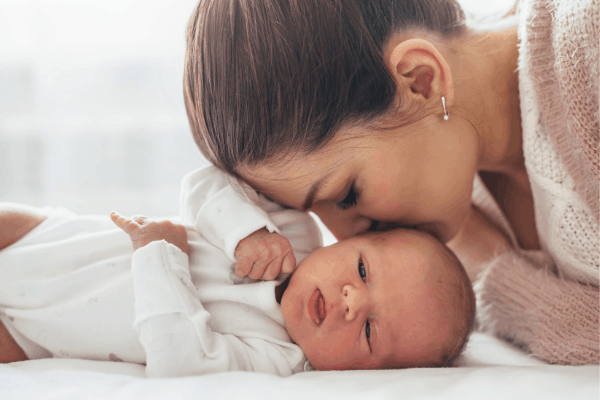
What We Know About Perinatal Depression and Anxiety
Rates of PPD/PPA were high before, and they are even higher now. It feels so grim. But let’s not wallow in the darkness; instead let’s use our knowledge as power.
The first step to change is awareness, and the more we know about a problem, the more the solution becomes clearer.
Indicators of PPD/PPA include a range of symptoms:
Some symptoms are externalized:
- Lots of crying
- Fatigue and low energy
- Nausea/vomiting
- Disinterest in things you used to enjoy
- Significant appetite changes with weight loss or gain
- Significant sleep changes with over or under sleeping not related to waking with the baby
- Hyperventilating
- Irritability/anger
Some symptoms are internalized:
- Feeling on edge
- Racing heart
- Having difficulty focusing/concentrating
- Worrying constantly about specific things or about many things
- Physical pain without medical cause
- Poor memory
- A sense of doom/panic
- Unwanted and scary intrusive thoughts
- Thoughts of wanting to hurt yourself or the baby
You may have only a few of these or you may have many. If it helps, print out this article and highlight the symptoms you are having to share with your partner, family, or doctor.
We also know that symptoms of PPD/PPA are made worse by isolation and a lack of support.
To counter this added obstacle, you need to be in communication with your partner, family and friends to determine what type of support you will most benefit from. It may be helpful to print out the following list and mark the ones that you want or need to share with a loved one.
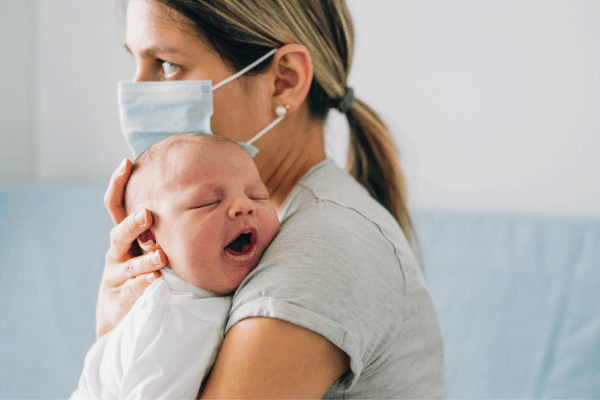
What We Can Do About Perinatal Depression and Anxiety
1) If you are not pregnant or postpartum:
You need to check in on their friends and family that are.
Phone call them or video call them. Send them texts of love and encouragement. Listen to them vent, and offer compassion and empathy.
If your friend or family member is comfortable with receiving food, do a socially-distant freezer meal hand-off. Repeat!
If you have the availability to be a physical help, speak with the mother about including you in their quarantine bubble.
Offer anything and everything you can think of in the way of support. Don’t wait for them to ask because likely, they won’t.
2) If you are the spouse or partner of someone who is pregnant or postpartum
There are many ways you can offer support and care for a partner experiencing perinatal depression and anxiety. Often partners aren’t sure how they can be the most helpful, and many times the partner is not biologically able to meet the baby’s needs like the mother can, so this leaves them feeling unhelpful.
One of the best things you can do is tend to the new mama. Make sure she has readily accessible water and food. Set up her nursing or pumping station. Give her a no-strings-attached shoulder or foot rub. Sweetly kiss her and give her hugs. Tell her she’s amazing and beautiful. Reassure her that she’s a wonderful mom.
While nursing and soothing may come more naturally to the mother, you can help with the baby in pretty much every other way: do diaper changes, baths, playtime, tummy time, push the stroller on walks, do the bottle-feeding sessions, help during nighttime wakings, become a master swaddler… and the list goes on.
Take the baby so that mama can veg, rest, or sleep. Start the day as the primary parent so that the mom can sleep-in and catch up on much needed REM sleep.
Outside of baby care, there also is a lot you could do to make mama’s life easier. Take on home duties without being asked. Make the meals. Do the dishes. Clean the house. Do the laundry. Get the groceries.
And lastly, know the signs and symptoms of PPD/PPA (see above), and be aware if you see them in the mom. You could always call the Postpartum Support International warmline at 1-800-944-4773 to get support and resources for your partner. Caringly tell her if you are concerned or think she could use extra help like therapy.
3) If you are expecting or are postpartum
First of all, I am so sorry you are going through what should be a wonderful and exciting, albeit challenging, time in the midst of such turmoil and instability. Motherhood has never been easy, but it’s even harder now. I am sending love and strength your way.
I want you to remember you WILL get through this. And when you do, you will be proud of your resilience, determination and strength. When things improve, you will be able to reflect that if you got through this, you can get through anything!
The best first step to improving your mental and emotional state is to acknowledge that you’re having a hard time. You just don’t feel right. You feel “wrong”. You don’t feel like yourself. The next step is to tell someone you trust: your partner, your own mother, your best friend, your doctor.
Things you can do to help yourself are:
- Self-care in whatever way you need and however feels good to you. Maybe it’s a socially distant hangout in the backyard while your partner is with the baby.
- Meditation on your own or using a guided meditation app.
- Deep breathing. I love the 5-6-7 method where you breathe in fully for the count of 5, hold for the count of 6, and release fully for the count of 7. Repeat five times or more.
- Do your best to eat healthily and stay hydrated.
- Join a virtual support group.
- Get vitamin D by going on walks.
- If you are up to activity, getting exercise by running or swimming is a great way to increase your feel good hormones.
Related: Postpartum Healing After Vaginal Birth
Related: 7 Easy Ways To Set Boundaries For Your Newborn During a Pandemic
If you’ve done or received all of the above and are still having trouble, know that seeking therapy and or medications may be what you need. There are evidence-based therapies for you that have been developed because PPD/PPA is so prevalent, and they are effective. We also live in a time in which there are many types of psychotropic medications to take the edge off or help you find balance as you maneuver through these uncharted waters.
Set up a virtual appointment with your doctor and/or find a telehealth therapist. There are many more telehealth therapists than there used to be, and their schedules are much more accommodating virtually than they used to be in-person. I am a therapist with MDLIVE, so I recommend them, but there are many other great options out there.
Do what you can to remind yourself that you can and will recover from PPD/PPA, and that the dust will settle on COVID-19 at some point. Neither will be affecting you permanently in the way that they are now.
Give yourself grace and compassion. Being a mom is hard and now it’s even harder. You are not alone.
About Christina:
Christina lives in San Diego with her hottie of a husband and their two kiddos, an imaginative & curious four-year-old girl and a snuggly & spirited two-year-old boy. Christina has been working in the field of mental health for over a decade, most recently providing therapy in the evenings via telehealth. During the day she spends her time caring for her children, blogging at Real Life Mama, and dreaming up DIY home renovations. Follow Christina on Facebook and Instagram accounts!
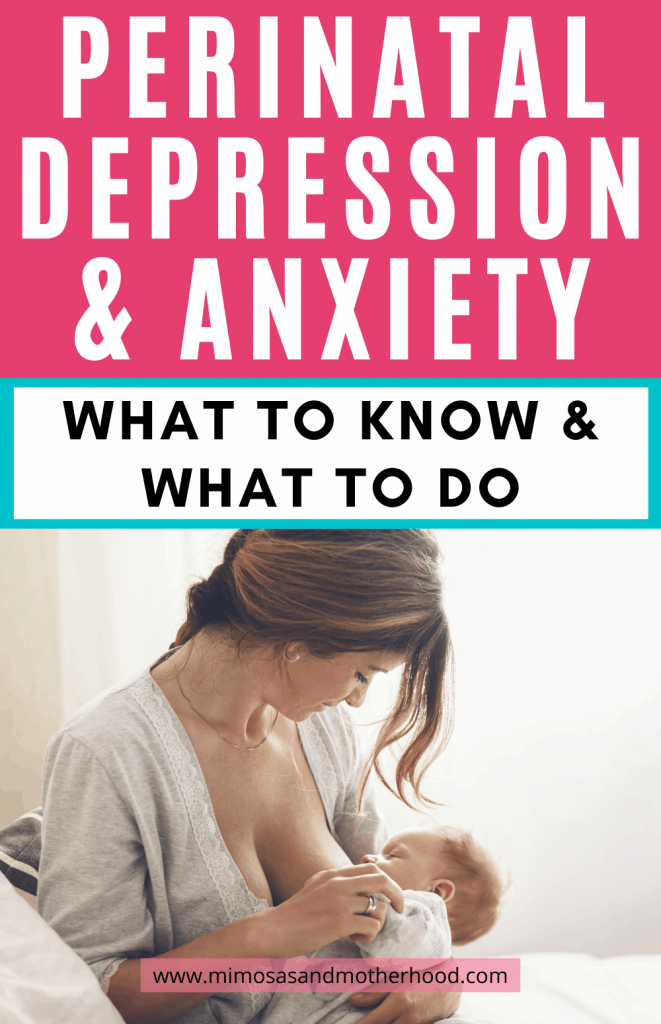
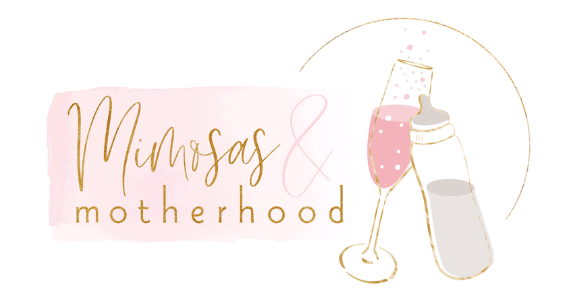

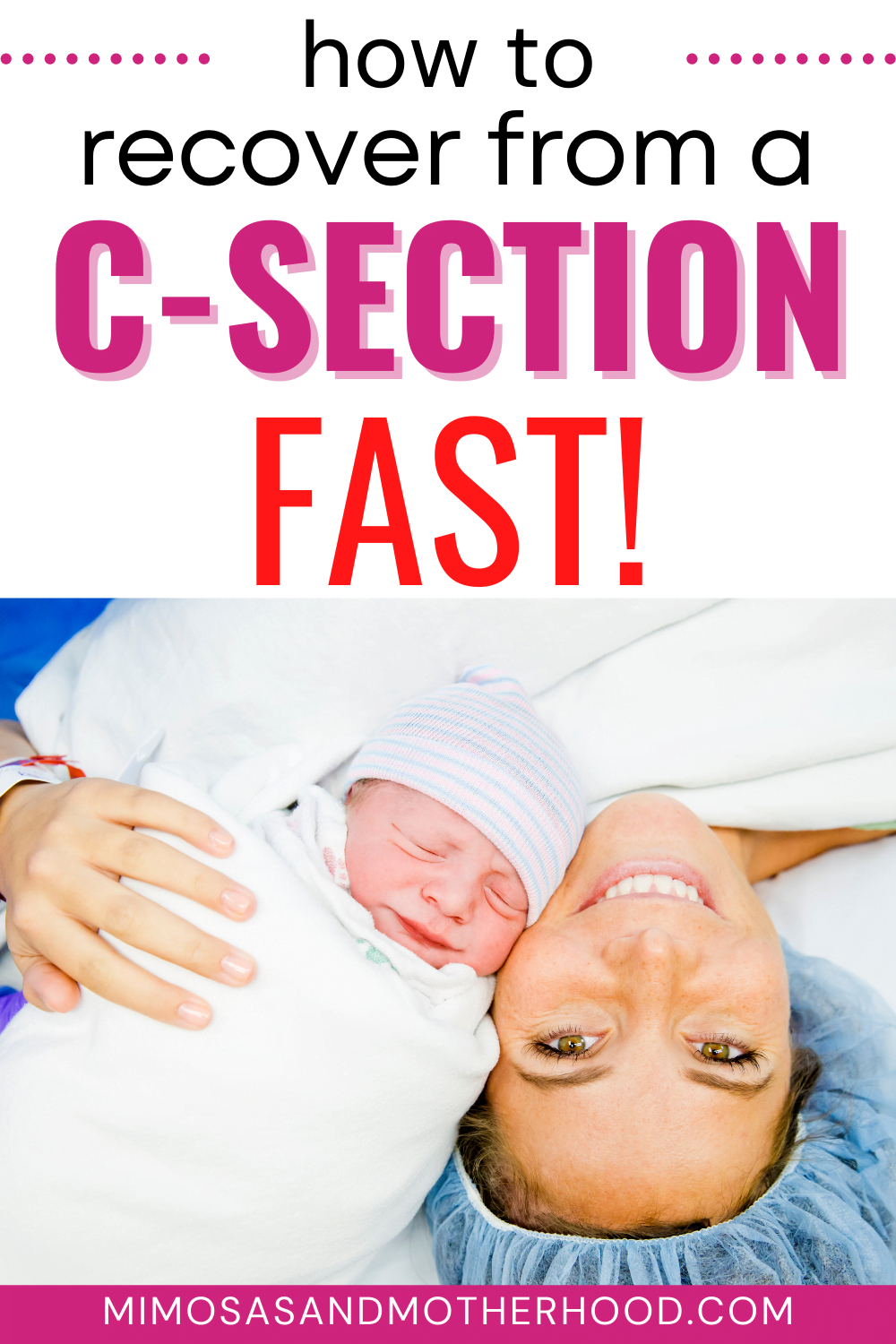
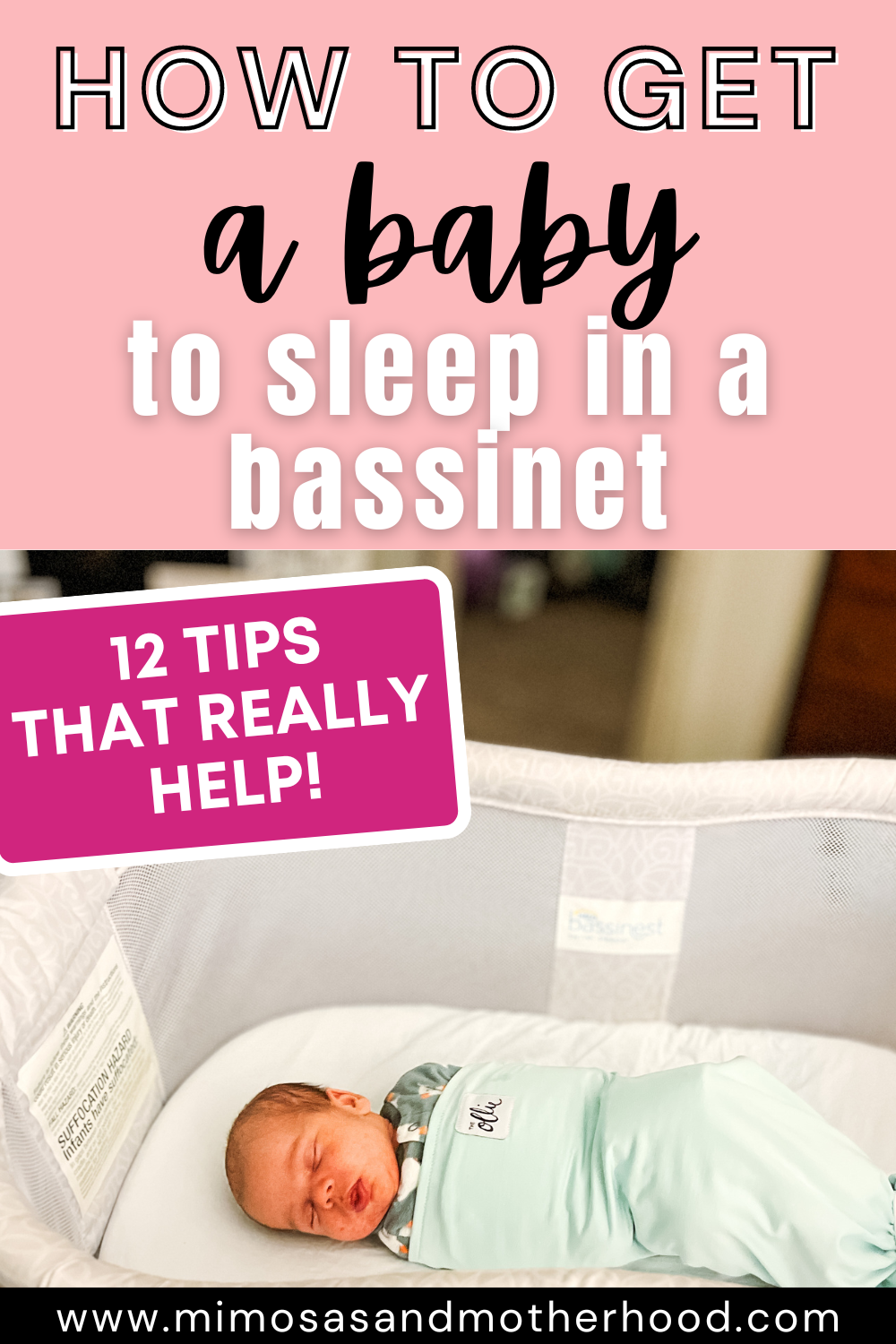


Thanks for featuring my guest post on your blog! I hope it is helpful to all mamas. 🙂
Thank you for sharing your expertise with our readers! Such an important topic.